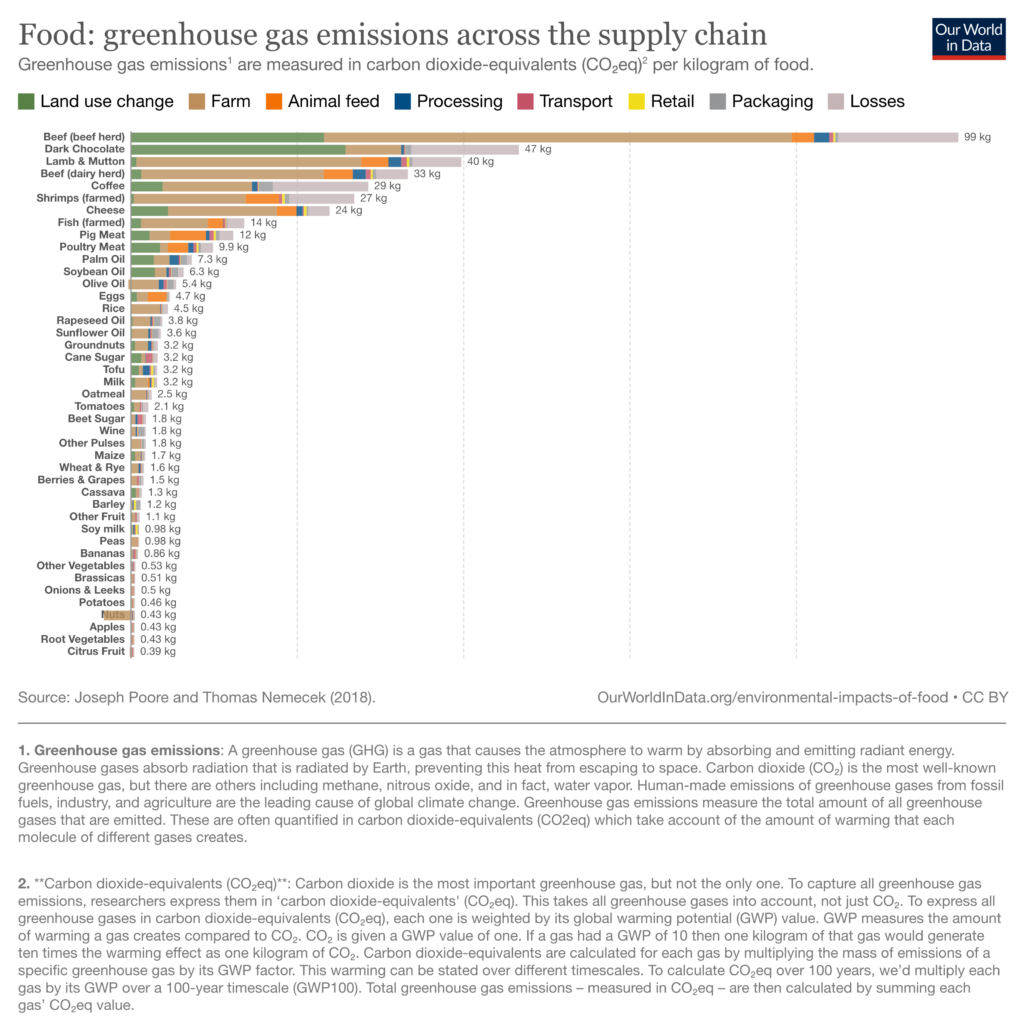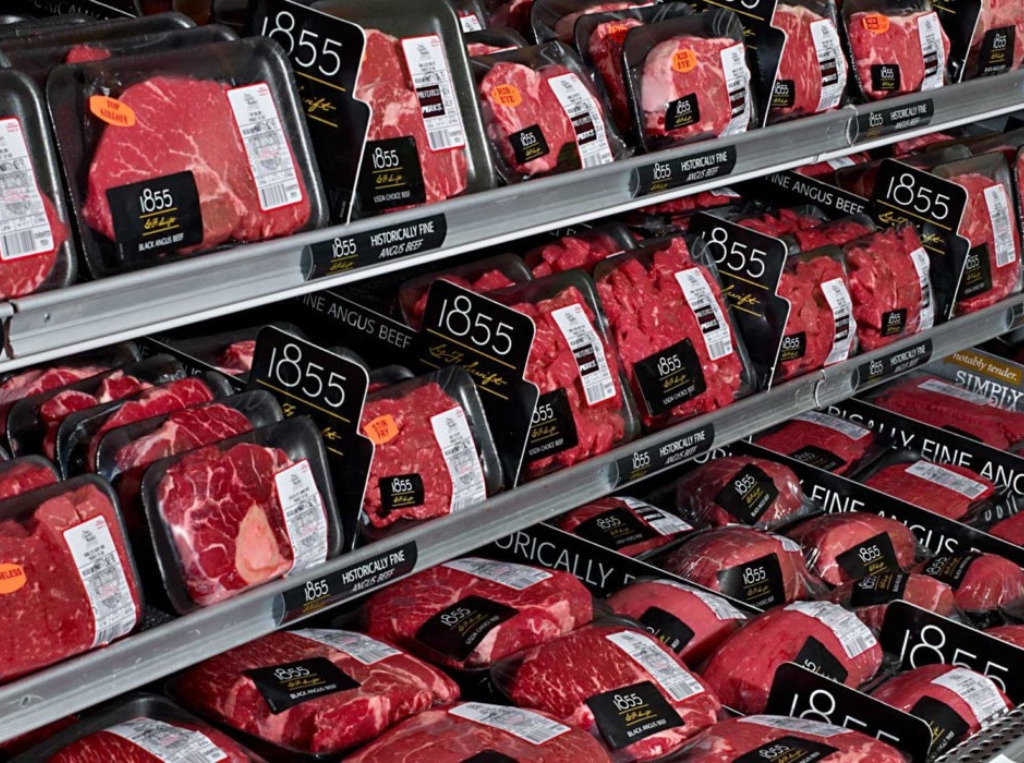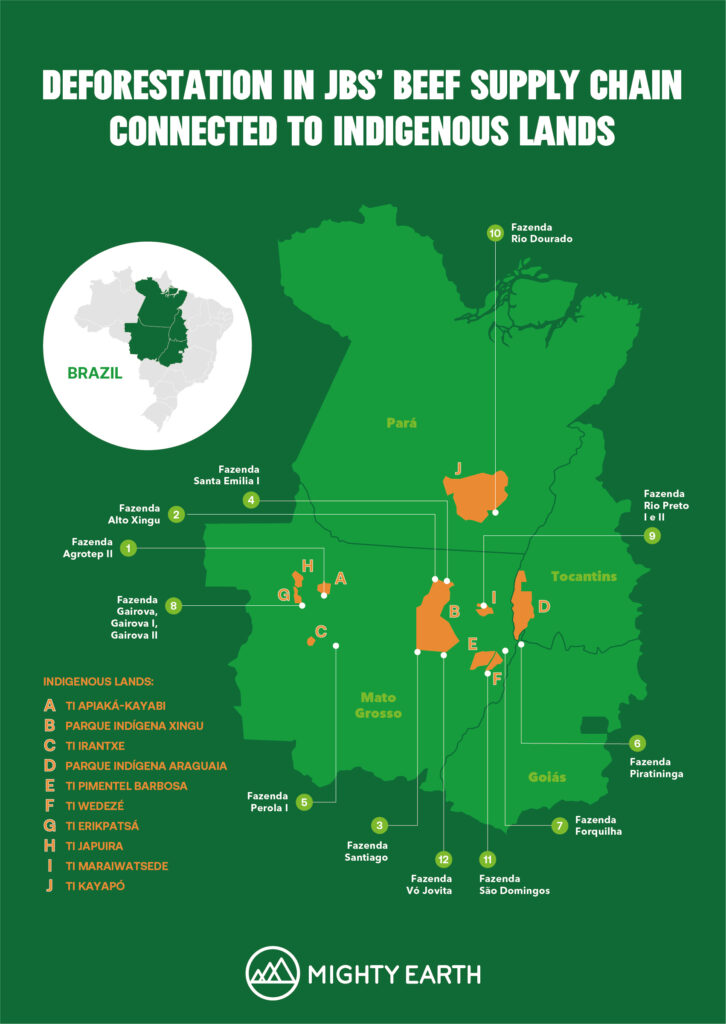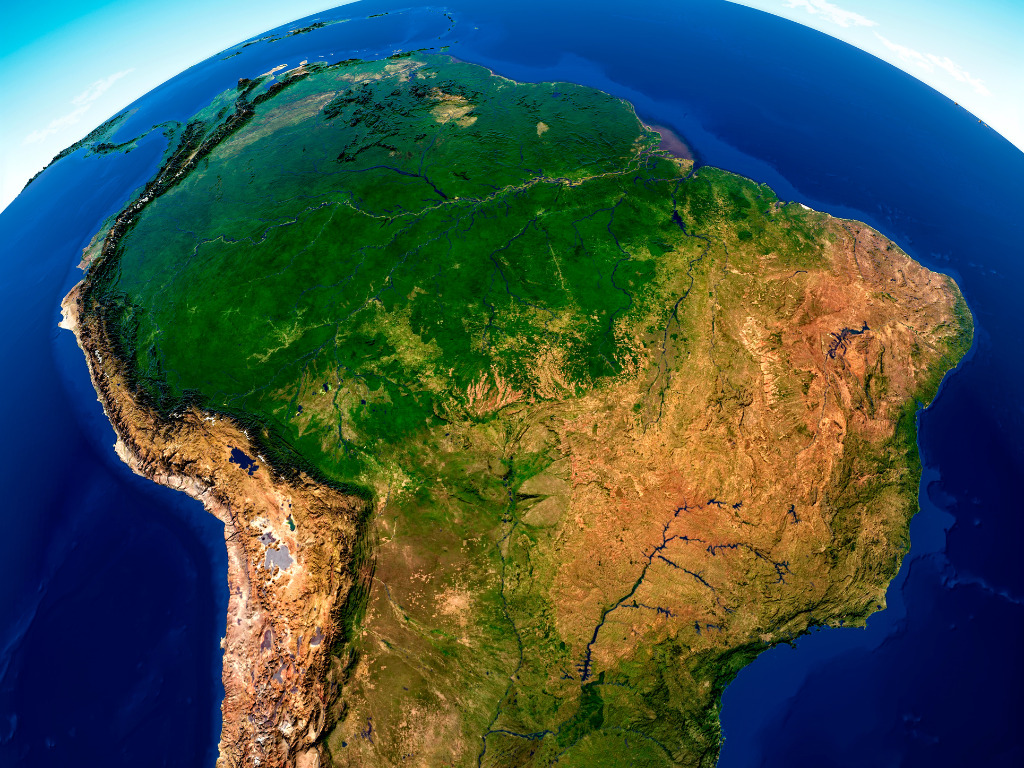Bad Bovina: Food Sector Responsible for 74% of Brazil’s GHG Emissions – With Beef the Major Contributor
4 Mins Read
In Brazil, the food industry is responsible for nearly three-quarters (74%) of total greenhouse gas emissions – and beef is associated with a huge chunk of it, according to a new report.
The study, released by Brazilian environmental group Climate Observatory, revealed that in 2021, the country emitted 1.8 billion tons of greenhouse gases to produce food, and beef was connected with 78% of this figure. The share of emissions linked to the food industry is more than double the global estimate, which is thought to be responsible for a third of all anthropogenic emissions.
Another report by the organisation – published last year – found that the country’s emissions saw a 12.2% hike in 2021 – the highest rise in 19 years. Brazil is the world’s second-largest beef producer (behind the US) and the biggest exporter of beef and soy. The latest research said that its beef industry alone would be the world’s seventh largest greenhouse gas emitter, surpassing the likes of entire countries like Japan.
Big beef, big emissions
The emissions associated with beef manufacturing in Brazil included those linked with livestock farming and pollution from beef packing plants. According to a landmark 2018 study by researchers at Oxford University, beef is the highest-emitting food by a distance – with emissions twice as high as the next food on the list, dark chocolate (and that’s not including beef derived from dairy herds).

A big reason behind these numbers may be that Brazil is home to the world’s largest meat company in JBS. The producer’s image is littered with greenwashing and ethical controversies involving its climate impact, labour issues and animal abuse.
Last year, a study found that JBS’s greenhouse gas emissions have increased by 50% in the five years prior as it acquired new poultry and livestock units. This meant that – despite pledging to reach net-zero carbon emissions by 2040 – it had a larger environmental footprint than Italy (JBS denied these figures and called them inaccurate).
The company, whose revenues top $72B according to Forbes, has also been in the news recently after calls by climate activists to halt its planned US IPO emerged in August, who labelled it the “biggest climate risk IPO listing in history”.
The Rainforest Action Network listed the accusations labelled at JBS over the last 15 years: “Illegality; deforestation; invasion and land grabbing of Indigenous and traditional territories; land conflicts and violence against rights defenders, slavery and labour abuses in its supply chain; lack of traceability; corruption; and greenwashing.”

Amazon deforestation reaching tipping point
The new report by Climate Observatory factored in deforestation and changes in land use, methane emissions from cow burps, and energy use and waste from agricultural and industrial processes. It outlined that most of the food industry’s emissions in Brazil don’t come directly from food production, but instead from the felling of land to convert native vegetation into farms and pastures, which is the main source of carbon release in the country.
Deforestation in the Amazon – the majority of which took place in Brazil in 2021 – has brought it close to a climate tipping point. Climate Observatory revealed last year that former president Jair Bolsonaro’s reign from 2019-22 saw a 60% increase in the rainforest’s deforestation compared to the four years before, the highest increase among presidential terms since records began in 1988.
“The Bolsonaro regime was a forest-burning machine. The outgoing President was sworn in with deforestation at 7,500 sq km and is stepping out with 11,500 sq km,” Climate Observatory executive secretary Marcio Astrini said at the time. “The only good news here is precisely that he is stepping out.”
According to the UN Food and Agriculture Organization, cattle ranching is the leading cause of deforestation in the rainforest, contributing to 80% of forest destruction and 340 million tons of carbon emissions annually. And JBS is among the biggest drivers of Amazon deforestation, with its slaughterhouses in the region more than doubling between 2009 and 2020.

Research by Mighty Earth and AidEnvironment estimates that the meat giant’s total deforestation footprint “in six Brazilian states since 2008 may be as high as 200,000 hectares in its direct supply chain and some 1.5 million hectares in its indirect supply chain”. The organisations identified 68 cases of deforestation linked to JBS’s beef supply chain, covering an area of over 125,000 hectares – almost equivalent to that of São Paulo or London.
“This report should be read by agribusiness representatives and the government as a wake-up call,” said Astrini. “It demonstrates, beyond any doubt, that agribusiness will determine whether Brazil is a climate hero or villain.”




